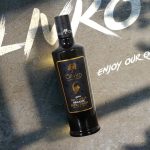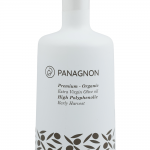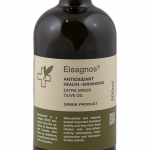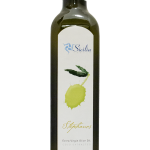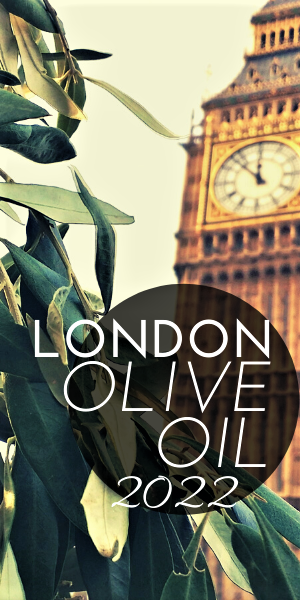Barely 25 km from Israel’s frontier with Syria — a country whose very name today evokes suffering and bloodshed — businessman Avner Talmon maneuvers his Polaris Ranger 4×4 along a dirt road overlooking the Golan Heights.
Despite the civil war raging on the other side of this heavily fortified border, the view from our vantage point 700 meters above sea level couldn’t be more peaceful; about the most dangerous things in our immediate vicinity are hairpin turns, occasional snakes and an unrelenting sun.
Here, on 60 hectares of hardscrabble land whose history dates back to long before the birth of Jesus, Talmon’s company, Olea Essence Ltd., harvests the fruit of 23,000 olive trees into organic olive oil and an array of natural cosmetics ranging from facial wash to foot cream. About half that land is Talmon’s; the rest belong to nearby Jewish and Arabic-speaking Druze farmers.
“Because we are from Israel, we have lots of know-how about olives that comes from thousands of years of tradition,” he says. “Olives are in our blood, in our DNA.”
How Talmon, 62, came to be an expert on making beauty products from olive oil is a story in itself — a tale this reporter heard earlier this month over a pita-and-hummus lunch at the Olea Essence visitor’s center, located three hours’ drive northeast of Tel Aviv, Israel’s commercial and cultural capital.
“We came to the Golan 19 years ago from Tel Aviv,” said Talmon, an archaeologist by training. “At the time, my kids were 16, 14 and 10. I wanted to give my kids their childhood back. My daughter liked riding horses. Eventually she ended up as Israel’s horseback riding champion.”
One day, the family drove up to Moshav Ramot — whose Hebrew name has nothing to with the fact that this lonely horse ranch is quite remote — and while the others were riding, Talmon spotted a neglected house looking out over breathtaking mountain scenery. On a whim, he bought it and then surprised his wife with the news.
“The house came with 20 acres of land that had nothing on it, so I decided to plant my own olives,” he recalled. “I was kind of drawn into it.”
To be frank, Israel — a world leader in diamonds, computer software, weaponry and medical devices — represents barely a blip on the world olive oil market. Its annual production of 5,000 metric tons pales in comparison to the 1.38 million tons produced by Spain, the 470,000 tons produced by Italy or the 320,000 tons produced by Greece in 2015-16, according to figures just released by the International Olive Council.
Yet only a tiny fraction of that production is unfiltered.
“You have two to three million tons of olive oil sold annually around the world,” he said. “If 100,000 tons of that is not filtered, then my name is not Avner.”
Talmon insists that U.S. and European consumers have been hoodwinked into buying only olive oil that is transparent.
“Look what you have in the States. The EPA is killing the olives, because they are rightfully protecting the water, which is scarce in California. They don’t let the olive oil industry contaminate the soil. But the contamination is not poison; most of the olive’s antioxidants are in the solids, which seep down into the water table and don’t dissolve.”
But Talmon arrived at his conclusions quite literally by accident.
“When you bring in 100 kilos of olives to the mill, you add 20 kilos of water and extract 20 kilos of olive oil. So 100 kilos are left as contaminated residue,” he said. “I discovered all this coincidentally by falling into a pile of it. The hose exploded and covered me with this mud. I was afraid, because I knew it’s not good stuff. Then my guys washed me off, and I saw my skin. It was way better than before.”
The entrepreneur immediately hired a chemist to investigate the specific properties of olive oil and how they could commercialize his discovery. He eventually wrote a patent on turning that residue into vinegar by fermenting it.
“I’m the only one in the world who has that technology,” he insisted.
Talmon’s company headquarters are in Qatzrin, a town of 4,000 that serves as the Golan’s administrative capital. He’s located across the street from a strip shopping mall and down the road from ancient Qatzrin and the remains of four olive presses.
Besides this location, Olea Essence has three other outlets in the north: Ein Gev, Ginossar and Yardenit — all popular destinations for Jewish tourists as well as evangelical Christians. The shops get a combined 100,000 visitors a year, mainly Americans and Europeans who arrive by the busload, view a five-minute video, take a tour of the facilities, enjoy lunch and watch a demonstration of how to use the company’s olive oil-based cosmetics, all of which are on sale at the gift shop.
There’s also a shop at Qumran, on the shores of the Dead Sea, as well as Talmon’s flagship boutique at 17 Ben Yehuda Street in Tel Aviv.
“The next one will be in New York’s West Village, and then Tokyo. I’m negotiating different franchises,” he said without elaborating.
Despite Israel’s proximity to Europe, the EU is not an attractive market for Olea Essence — for both political and economic reasons. The EU slaps a €1.20 duty on every kilo of olive oil imported from Israel; this, says Talmon, is aimed at protecting Spanish, Italian, Greek and Portuguese olive farmers.
“Most Israeli products don’t pay EU taxes, but olive oil is one of the few products that Europeans are protecting,” he said. “The Europeans also have all kinds of regulations that are meant to keep you away. It’s all one big super-capitalist market, keeping away competition, but eventually that prevents them from excelling.”
The other reason is political. In November 2015, Brussels enacted a new set of guidelines requiring all EU-bound exports — including wine, dates, poultry and olive oil — originating in the West Bank, East Jerusalem and the Golan Heights to carry the words “Israeli Settlement” in addition to the “Made in Israel” label.
These days, the two-thirds of the Golan Heights that Israel captured from Syria during the Six-Day War of 1967 and officially annexed in 1981 bears little resemblance to the country that once ruled it. About 40,000 Jews and Arabic-speaking Druze inhabit the 580-square-mile enclave known for agricultural production, wineries, tourist attractions and nature parks.
Yet Syria has never relinquished its claim over the Golan, and no other country save Israel has recognized the Jewish state’s sovereignty. That’s why the EU’s directive requires separate labeling for products, like olive oil, which are produced there — even though the White House and many members of Congress have strenuously objected to such regulations on the grounds that they are discriminatory and counterproductive.
“That’s another reason to go to the States,” he said. “For every person who doesn’t want to buy from the Golan, there are four who do.”
Politics aside, there’s no disputing the Jewish historical presence here. At least 30 synagogues from the Roman and Byzantine periods have been excavated throughout the Golan. Yet Mideast politics, rather than sound business decisions, frequently dictate what’s in the best interests of Israel’s Arab neighbors.
“Jordan has a water crisis, so seven years ago, on my own initiative, I knocked on their door with a solution free of charge,” Talmon said of his meeting with Jordanian authorities hoping to increase domestic olive oil production. “They were interested, but they stopped talking to me the moment they heard I was in the Golan.”
Olea Essence sells 120 distinct products and employs 25 people. In 2010, the company was the Israeli winner of the CleanTech Open competition in San Francisco.
“I am sustainable, I am organic and I don’t need certification,” Talmon boasted. “I’m more organic than all those who have certificates.”
At present, Olea’s most promising markets are the United States and Southeast Asia — specifically Japan, South Korea, Hong Kong, Singapore and the Philippines. His single biggest customer is Whole Foods Market, which currently carries the Eco Olea line of organic household cleaning products.
“Our household cleaners are the only ones in the world that are fully natural,” he said. “We’re the only one on Whole Foods shelves that is green. The Consumer Products Safety Commission said I don’t need to apply to the FDA or anyone in the States. Nothing calls for any inspections. The Environmental Working Group rates us triple-A.”
Prices for Olea Essence products range from $8.00 for a 50-ml tube of olive wash and exfoliant to $90 for eye cream and face serum. The company also has three specific olive oil brands: Beit Saida Green ($19.00 for a 900-ml tin); Kursi Black Seal ($22.00) and Tabha Gold Seal ($28.50).
Talmon owns 50 percent of Olea Essence; the other half is owned by the Haama Group, Israel’s biggest textile company, and by Israeli industrialist Danny Hoffman.
“The owners fell in love with our business and invested some money,” said Talmon, who’s poured $4 million into Olea since the beginning but refused to discuss revenues. “It’s profitable now. We’re investing everything back into the company.”
